Sean Knox
If someone wants to see sustainability in action at the Community College of Baltimore County, all they have to do is step into the nearest bathroom.
Looking around, they’ll see a composting bin intended for used paper towels. Composting provides another way to break down the paper towels while cutting down on the amount of waste that ends up in a landfill.
The bins aren’t flashy or overly conspicuous, but they’re part of a college-wide initiative to improve sustainability and reduce CCBC’s carbon footprint.
“It’s a win-win,” says Dr. Robin Minor, a Biology Professor and Sustainability Co-Chair for the Dundalk campus. “It’s no sweat to put your paper towels in a compost bin rather than a trash bin, and it’s less of a load on the landfill.”
The switch to composting, first implemented on the Catonsville campus and now expanding to the Essex and Dundalk campuses, is just one part of the CCBC Sustainability Committee’s ongoing plan to improve sustainability in 2020 and the years to follow.
Along with composting, CCBC is also focused on promoting its long-running single-stream recycling program. The recycling program, which has been in effect since 2008, is another key way to keep waste out of landfills.
While the recycling program has been effective, the Committee is working on emphasizing the importance of "clean" or uncontaminated recycling.
“If the recycling stream is contaminated with items which are not deemed recyclable by the receiving facility or entity, the entire load is rejected and treated as trash,” says Janet Gross, Professor and Sustainability Chair for the Catonsville campus. Gross notes that possible contaminants can include items like food, aluminum foil, spilled liquids, and beverage containers that haven’t been rinsed out.
To spread the word and engage the campus community, the college is working on developing and training sustainability advocates: students who can go into classrooms and cafeterias to promote clean recycling and discuss which items can and can’t be recycled.
“The main goal is to change people’s behavior…to get the communication out and get people to understand the impact that the behavior change would have on the environment,” says Tanya Jones, the Campus Director for CCBC’s Dundalk campus.
The focus on waste reduction was highlighted in the Sustainability Committee’s 2019 Annual Report, which cited that over 80 percent of CCBC’s waste from the 2018 fiscal year was sent to landfills.
The report stated that the college-wide amount of waste generated in 2018 averaged out to approximately 62.37 pounds of trash per student. Only about 10.2 pounds were recyclable, while the remaining trash ended up in a landfill.
Another way to cut down on landfill waste will be to focus on eliminating single-use plastics whenever possible. Reusable water bottles have been given away at events like the Earth Day and Sustainability Day fairs, and water bottle-friendly hydration stations are gradually replacing campus water fountains.
In campus cafeterias and at campus events, food service vendor Sodexo recently transitioned away from plastic serving ware in favor of only using recyclable and biodegradable options.
In addition to prioritizing waste reduction, the college has also been pursuing energy-saving measures like solar panel canopies in parking lots, conserving energy during holiday breaks and long weekends, and making use of more energy-efficient lighting. Recent and upcoming building projects will be built to meet LEED building certification requirements and will incorporate sustainable and environmentally friendly design elements like green walls and green roofing.
“I think that people don’t realize…how much energy we use, how many paper towels we use…so I think it’s just getting people to realize that even though they’re one person, they can make a difference and that if everyone tries we can all make a difference together,” said Katie Welsh, a Committee member who works in the Catonsville Campus Director’s office.
Students can join student organizations like the Essex campus’s Environmental Science Club or the Catonsville campus’s Green Club and are also welcome to join the Sustainability Committee itself.
While the Committee acknowledges and fully understands that many students and staff have plenty of obligations and responsibilities off-campus, they eagerly welcome any students and faculty members that would like to get involved.
Anyone interested in learning more about the Sustainability Committee is encouraged to get in touch with their Campus Director’s Office, where they can find out about upcoming events and start attending Committee meetings.
“We’re open for faculty to come through, we’re open for students to come through, and we’re open for them to bring their ideas,” says Minor.
That interest in creativity and new ideas has led to a series of new collaborations.
CCBC recently partnered with Hungry Harvest, an organization that periodically brings discounted fruits and vegetables to sell on campus during the spring, summer, and fall.
The deliveries consist of produce that would be excluded from grocery stores for not being a preferred shape or size, or simply because a store ends up overstocked with a particular item. Instead of going to waste, these visits allow students to purchase more affordable food, as covered in this 2018 Baltimore Sun piece.
One of the most interesting collaborations has been with an organization called Lights Out Baltimore, a group that focuses on reducing bird-window collisions that frequently result in the deaths of tiny songbirds.
After being invited to an Earth Day event at the Dundalk campus, the group was asked to help make campus windows more bird-friendly. Lights Out designed and installed thin vertical strips of synthetic material to hang from windows that posed the greatest risk of attracting collisions, thus breaking up the clear or reflective image of the window and making it more visible to nearby birds.
The Committee sees partnerships like these as one more way to develop healthy and sustainable practices as the college grows.
“Our name is community college…while much of what we do should be focused around education, and there’s a lot of education needed in sustainability, the community piece is just a no-brainer,” said Minor. “You take care of your community and choose best practices that will benefit the community, not just in the short-term, but in the long-term too.”


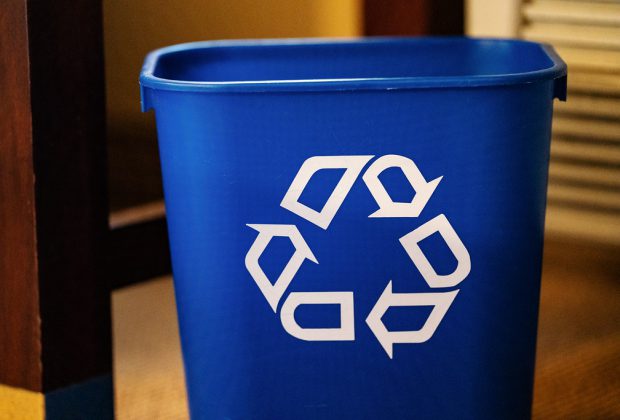


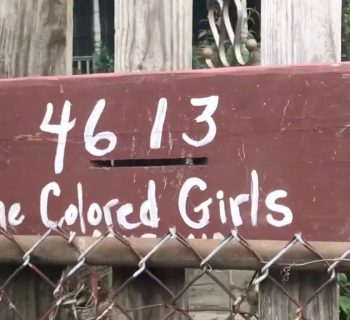

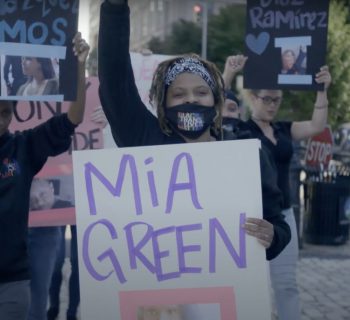



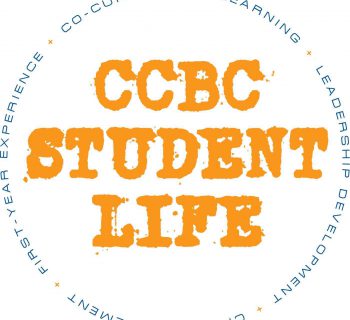
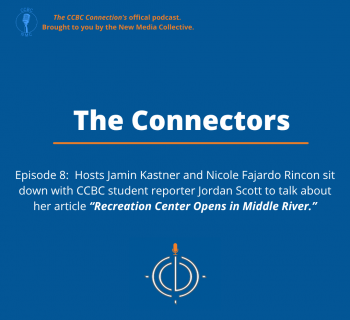

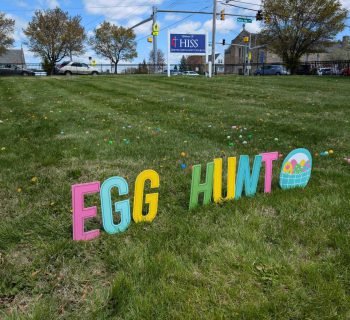
Hi Sean,
Thanks for a fantastic overview of this important work. I’ve worked here for ten years, and while I had heard of and seen many of these initiatives, your journalism really helped put them in a single context for me – helped me see the larger picture. Thanks for this great work!
-Kyle